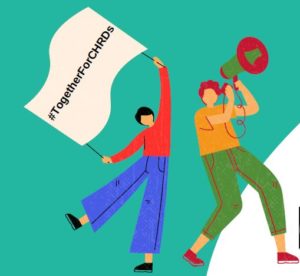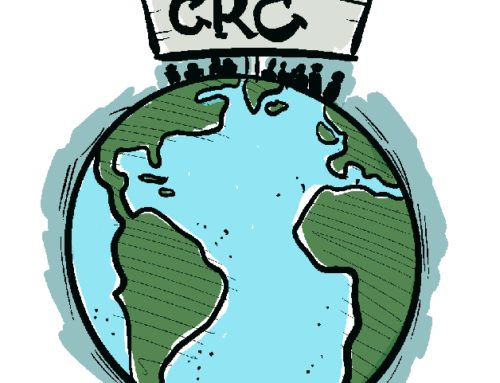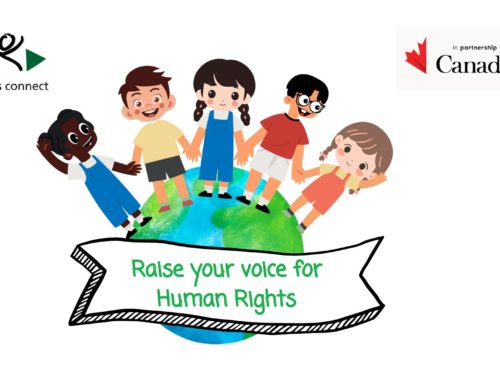Child Rights Connect, its member Child Rights Information Center (CRIC) and a coalition of NGOs have been conducting innovative and experimental work that has put child human rights defenders (CHRDs) on the agenda in Moldova. We are sharing some exciting updates to inspire similar practices globally.
With the launch of our Implementation Guide: The Rights of Child Human Rights Defenders at the end of 2020, it was time to put it into practice at the national level. Using the Guide as our framework, Child Rights Connect and CRIC Moldova partnered to undertake capacity building for civil society organisations, CHRDs and the Children’s Ombudsperson covering topics such as children’s civil and political rights, protecting CHRDs from harm, parents’/guardians’ rights and duties and child-friendly justice. This was the first time that all these actors sat together to discuss the whole set of rights of CHRDs, and it was a unique opportunity to clear misunderstandings such as around the definition of CHRDs. It was also important to discuss different positions and find common ground in relation to sensitive issues such as political participation, as well as specific implementation issues where international standards are not clear enough (for example, setting a minimum age for child organisers of peaceful assemblies).

As a result, a situation analysis was developed which assessed good practices, gaps, challenges, and recommendations, leading to the creation of a common action plan to determine priority actions and guide next steps. It was clear that awareness-raising and recognition of CHRDs was a priority, hence the recently launched campaign (co-led between CRIC, child and young human rights defenders and partners) on a safe and enabling environment for CHRDs.
The situation analysis was also used to develop the very first civil society UPR submission focusing entirely on CHRDs. The report included CHRDs’ views and was supported by the Children’s Ombudsperson. CRIC empowered CHRDs to use the report for advocacy with States, including through the participation in the UPR pre-session at the end of 2021.
At the same time, the National Human Rights Institution (The People’s Advocate) and the Children’s Ombudsperson launched a public call for a new law on human rights defenders and the Children’s Ombudsperson proposed for this Law to a specific chapter on CHRDs. Child Rights Connect endorsed a joint civil society submission led by CRIC to welcome the initiative and provide some key recommendations including for children’s participation throughout the process and the focus on the protection of CHRDs to be balanced with empowerment. We also urged States to use the UPR to acknowledge and support this initiative, with the result that, during the Moldova’s review on 28th January 2022, Mexico called for the country to develop a comprehensive law on human rights defenders. The reply by the government of Moldova to the draft report of the UPR Working Group was promising as it ensured that the UPR recommendations will inform the next national human rights action plan and that civil society will be consulted. The impact of the UPR civil society report went far beyond the UPR as it promoted the Special Rapporteur on Human Rights Defenders to request a meeting with CHRDs to better understand their situation in Moldova and to learn from their experiences to inform her work.

The next steps include building the cooperation with the children’s ombudsperson to help advance a child rights approach to the new law, bringing international support and attention to the process, continuing the strong focus on empowering CHRDs at the community and national level, using the forthcoming UPR recommendations to advance the activities of the common action plan and linking to the forthcoming review of Moldova by the Committee on the Rights of the Child.
It has been an incredibly insightful project so far and we look forward to sharing further news. Meanwhile, some key tips and lessons learned:
- Our Implementation Guide provides a solid framework for advancing the implementation of the Declaration on human rights defenders and the UNCRC.
- The involvement of broader human rights organisations beyond the children’s rights sector allows for very thought-provoking discussions to help broaden collective knowledge and understanding of the context and the rights of CHRDs.
- Empowering CHRDs throughout the process is essential because this is their right, and for a more accurate interpretation of the key challenges and priorities to focus on.
- Building allies at the international level brings attention and support for advocacy on CHRDs at the national level.










Leave A Comment